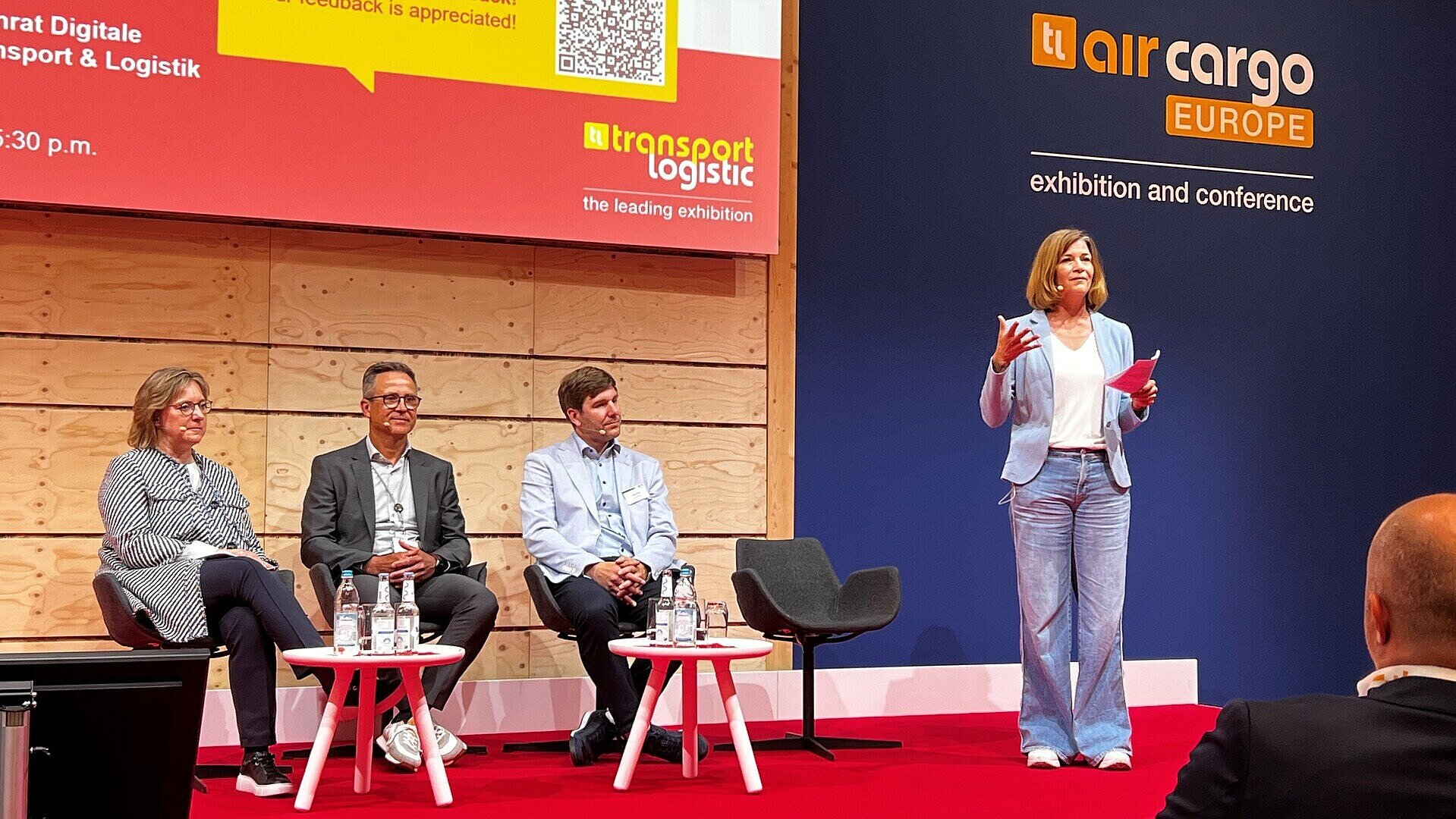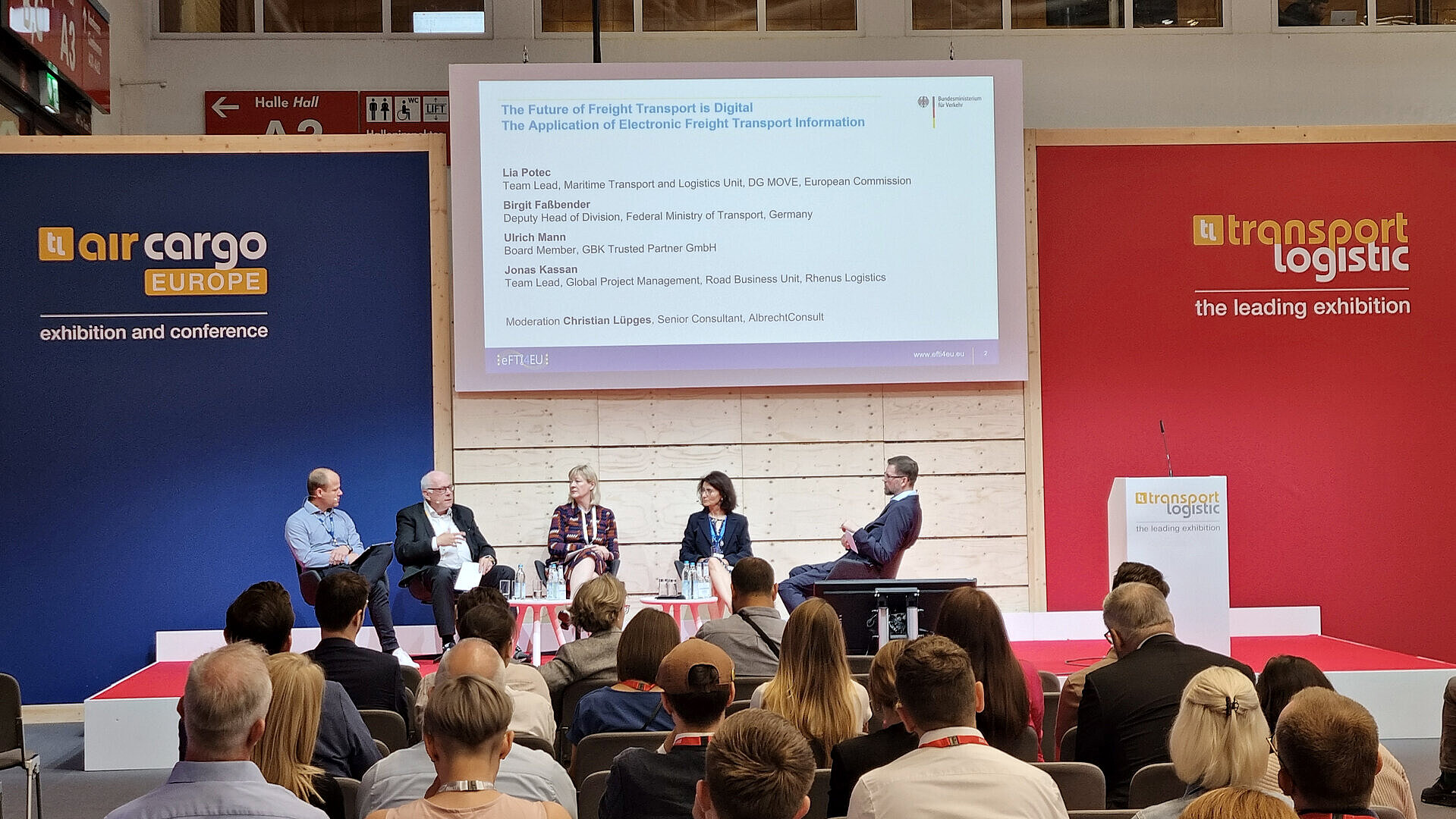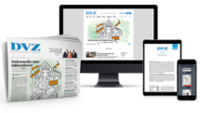
Recommendations for less bureaucracy and faster transport processes

Clear results: The Expert Council for Digital Transformation in Transport and Logistics, founded in 2023 at transport logistic on the initiative of automotive specialist VDO/Continental, presented the results of its two years of consultations on Wednesday. The committee, headed by Frauke Heisterman, Managing Partner at Axit Capital, and Professor Thomas Krupp, Cologne University of Applied Sciences, first documented the processes involved in international road freight transport and compiled a list of the challenges that arise.
Based on this, the experts identified three key levers for increasing efficiency and derived recommendations for action for companies in the sector. The proposals focus on the uncomplicated fulfilment of regulatory requirements in the face of excessive bureaucracy, waiting times at the ramps of industrial and commercial companies, and the transmission of shipment data. According to the experts, the fastest successes can be achieved in these areas.
In a short keynote speech, Bernhard Schmaldienst, Senior Director Transport Execution and Visibility at Transporeon, and Professor Krupp presented a digitalisation target for transport service providers that would significantly improve the efficiency of their processes. Among other things, they proposed using electronic pallet accounting and replacing freight documents with electronic consignment notes (eCMR).
AI opens up new areas
Artificial intelligence also expands the potential of software solutions in areas that have long been closed to traditional media, Krupp continued. These include social media, for example. However, the development of AI in logistics applications should not be an end in itself or be driven purely by marketing considerations, Schmaldienst warned.
‘The value contribution of AI must be visible,’ he emphasised. What this means to him is clear: ‘AI must ensure that we can deploy software solutions much faster and at significantly lower costs.’ Success will be measured by whether the applications are used for significantly more tasks and much more frequently.
Schmaldienst also cited an example that clearly demonstrates the added value of AI: Transporeon already uses AI in a quarter of its freight purchasing, with an annual growth rate of 80 percent. With 80 percent fewer staff, it achieves an average of 10 percent lower freight rates on the spot market.
The transport management platform also tracks around 1 million active trucks daily and records their waiting times at loading points. He had some good news from the data analysis: ‘If we can give every truck driver back 20 minutes a day that they spend waiting and can spend driving instead, we will have solved the driver shortage for the next 10 years.’
Paperless dispatching of 700 transports
Josef Heiß, managing partner of the BTK freight forwarding company in Raubling near Rosenheim in Upper Bavaria, then reported on how his company was able to significantly speed up important processes by using artificial intelligence in administration. The service provider, which has 160 of its own vehicles and 200 additional trucks on permanent charter, has been dispatching its approximately 700 daily transports paperlessly since 2018.
BTK also checks almost 100 per cent of its subcontractors' incoming invoices automatically. In addition, the freight forwarder can optimise its transport routes using a networked, platform-based matching function and schedule them semi-automatically via Neocargo's Neomatch platform.
The concluding discussion on the most important areas of action for freight forwarders and transport companies, moderated by Heistermann, focused, among other things, on ways in which freight forwarders can prove that cabotage journeys are carried out in compliance with the law – despite shared responsibility, clients tend to delegate this task to service providers, thereby risking high penalties for both parties in the event of violations. ‘The second-generation smart tachograph provides digital, reliable data. It records border crossings with time stamps, distances travelled, unloading locations and times,’ emphasised Volkmar Knaup, Head of Services Europe in the Commercial and Special Vehicles business unit at VDO/Continental.
Various minimum wages and billing regimes
Being able to receive and reuse data directly from the vehicle is useful because, among other things, different minimum wages and billing regulations apply in each of the 27 EU countries, explained Petra Seebauer, Managing Director of the Logistics Competence Centre Prien (LKZ). Freight forwarder Heiß reported on the incomprehensible waiting times that complete recording reveals: ‘We have a customer who assigns us a loading time slot at 12 noon on day 1 and an unloading time slot at 2 p.m. on day 2 – but there is only a distance of 200 kilometres between them.’
Such excesses only occur because, up to now, everyone has only thought about themselves when it comes to optimisation. ‘We should actually be networking all systems across the entire supply chain and thinking ahead to the next steps,’ emphasised Seebauer. Currently, a lack of digital interfaces is particularly hindering intermodal transport. Combined transport often fails due to overly heterogeneous IT and a lack of standards. (loe)



